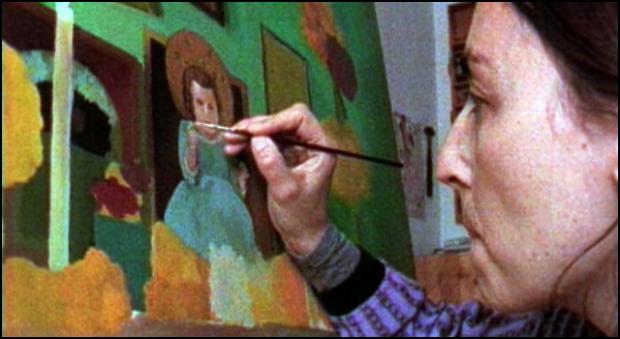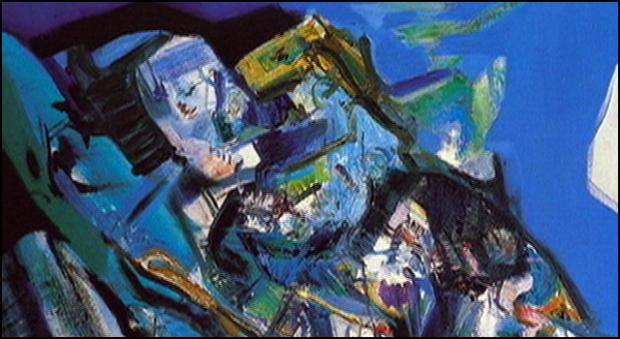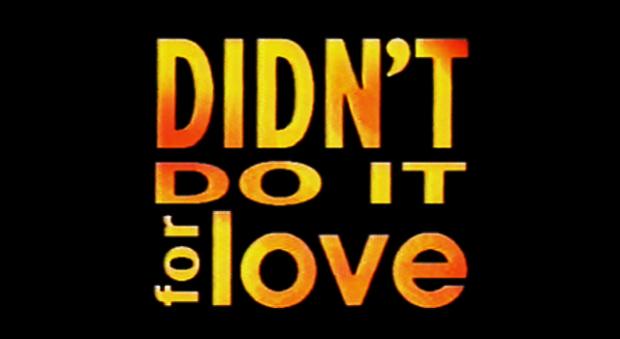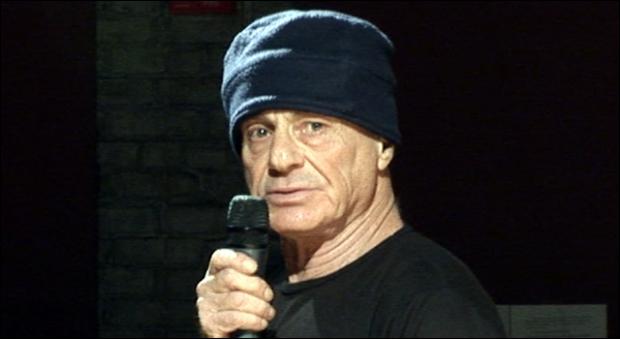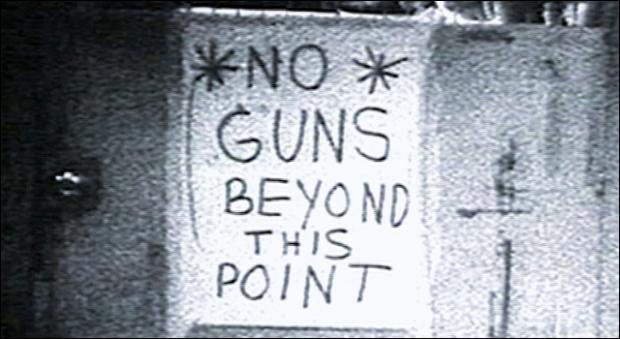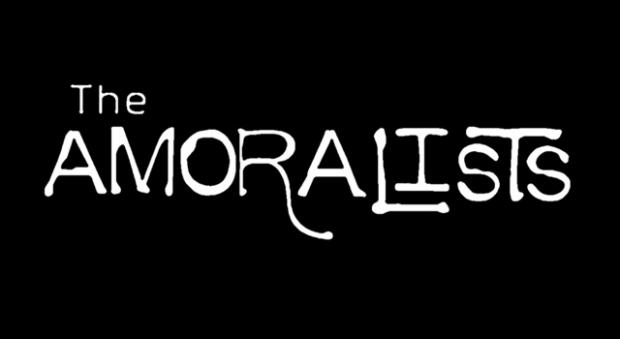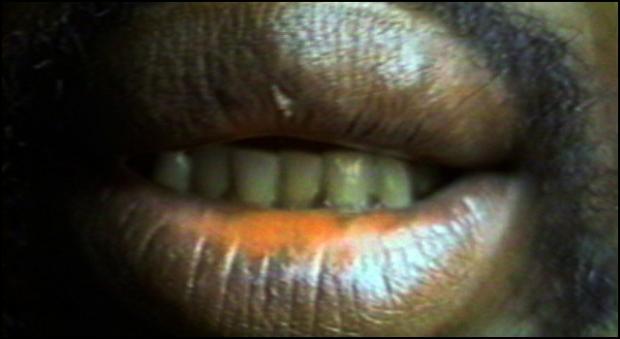Documentaries
AMI lives and breathes the documentary form in its many variations. As documentary filmmakers, we recognize that while we're capturing reality, we are also projecting ourselves. Our deep understanding of documentary production allows us to bring the soul of the subject and the vision of its creators to life. AMI lives and breathes the documentary form in its many variations. With our experience, talent and intimate knowledge of the form, we are proud to create consistently compelling documentaries.
Latin American Women Artists
was commissioned by Philp Morris to accompany the Milwaukee Art Museum's Latin American Women Artists show, originally curated by Geraldine Biller.
The museum required that as much artwork from 1915-1995 be represented in the film, including the work of 35 different artists from 20 different countries,
all within 25 minutes.
The solution was to shoot interviews against blue screen
and key in the artwork behind the subjects, allowing the viewer to see both artwork and the artist in the same frame.
Includes interviews with Elba Damast, Fanny Sanin, Soledad Salame, Maria Magdelena Campos Pons and art historian Edward Sullivan.
TO ORDER "LATIN AMERICAN WOMEN ARTSITS" CONTACT FILM MEDIA GROUP
LeRoy Neiman's Big Band
LeRoy Neiman's Big Band is one of Eric Marciano’s favorite projects. It is a unique film that explores the intersection of visual art and music and how the two inspire each other.
LeRoy Neiman's Big Band was commissioned by the world-renowned artist LeRoy Neiman and intertwines over 50 years of LeRoy’s paintings, water colors and works on paper with the music from jazz players that moved him, many of whom he knew.
The co-producer, director, cinematographer and editor Eric Marciano has years of experience integrating these two distinct, yet parallel worlds, which made him the ideal choice for this film. As LeRoy has stated, “He fundamentally understands both worlds.”
The concept for the film began with telling the story of the creation of one of LeRoy’s latest works. A large canvas inspired by Wynton Marsalis’ Lincoln Center Jazz Orchestra. Referred to as the “Big Painting” this work is 18 feet wide and 12 feet high. It features 18 of some the biggest personalities in jazz history including Ella Fitzgerald, Louis Armstrong, Duke Ellington, Benny Goodman, Charles Mingus, Miles Davis and Dizzy Gillespie.
Along with exploring the creation of the “Big Painting”, the film reveals over 100 other jazz related drawings, paintings, posters and works on paper allowing the film to include the music of Chet Baker, Sonny Rollins and Frank Sinatra.
LeRoy shares many of his personal anecdotes about these Jazz Luminaries.
The show was filmed in HDV and scanned at high resolution. Special care was taken tocapture theses works in all of their style, color and brilliance.
LeRoy Neiman's Big Band is like to be released anytime soon. If you are interested in discussing the film please contact Eric Marciano.
Fanny Sanin: The Critic's Eye - Explorations in Abstraction
Colombian-born painter Fanny Sanin is one of the world's greatest living color field painters. In 2003 Eric Marciano and Mayer Sasson worked together to create a definitive film that would encompass her entire evolving body of work.
A wide variety of unique sources, from photographs from the1940s, slides, gallery and museum catalogues from the 60's and 70's and video and film from 1970s, 1980s and 1990s were woven together in a seamless cinematic style.
Perhaps the most interesting approach to the film is the script, which was assembled from the written and filmed critiques and explanations from art critics from around the world.
This film succeeds at revealing the mastery of light and color that this special artist has brought to our world.
Didn't Do It for Love
AMI was the happy home to the post-production process for Monika Treut's "Didn't Do It for Love." Under a tight schedule and even tighter budget, AMI did it all, from picture cutting to full sound mix.
"German helmer Monika Treut's ongoing journey through the outer reaches of feminism and sexuality reaches "Didn't Do It For Love," a portrait of Norwegian-born actress-turned-sex therapist Eva Norvind, whose powerful personality triumphs . . .
Cable and outre fest slots are the snug homes or this often fascinating item, which is as frank in approach to its subject matter as the lady herself."
-- Derek Elley, Variety, March 9-16, 1998
Distributed by First Run Features.
Nobody Does It Like This Anymore: The Theater of Lee Breuer
From 2012 to 2020 Eric Marciano documented and collaborated with Lee Breuer, a major figure of American experimental theater and co-founder of Mabou Mines Theater Company, on a wide variety of projects. Much of that work is coming together in a documentary designed to explore Lee and his collbaorator's creative process. "Nobody Does It Like This Anymore: The Theater of Lee Breuer". Breuer and his partner Maude Mitchell Marciano share the vision that this documentary would be recognized as a comprehensive telling of his process and his later works. A film that would be appreciated by any serious student, teacher or patron of avant-garde theater and theater in general... On January 3rd, 2021 "shuffled off this mortal coil" and left us. This makes "Nobody Does It Like This Anymore: The Theater of Lee Breuer" ever important and a testament and legacy to the remarkable body of work created over a lifetime of following his unique creative instincts and influence to create theater and art that is both breathtaking and life giving... In "Nobody Does It Like This Anymore: The Theater of Lee Breuer". Breuer’s body of work is examined through interviews with his key collaborators. Filmed interviews to date include Greg Merhten, Bill Raymond, Bob Telson, Sam Butler Jr., Eamonn Farrell, Jessica Weinstein, Jay Ansil, Thomas Keith, Annette Saddik and Alex " Tiappa" Klimovtsky as well as discussions with Lee and his long time production designer Alison Yexa and his partner Maude Mithchell on his process, his techniques, and the prevalent themes that have provided the foundation of his almost 60-year career... Lee Breuer was a founding artistic director of Mabou Mines Theater Company in New York City, which he began in 1970 with colleagues Philip Glass, Ruth Maleczech, JoAnne Akalaitis, David Warrilow, and Frederick Neuman. His strong belief in experimental theater’s ability to illuminate our world by pushing dramatic convention beyond the mere depiction of reality can be found in Mabou Mines’ mission statement: Mabou Mines is an artist-driven experimental theater collective generating original works and re-imagined adaptations of classic plays through multi-disciplinary, technologically innovative collaborations among its members and a wide world of contemporary composers, writers, musicians, puppeteers and visual artists... The result of Breuer’s style as an adaptor/director is often described as stylistic “mash-ups.” To Breuer, the stage is like a supercollider in which different genres and cultures are slammed together and fused into something wholly new. While this technique has at times been off-putting to both purists and critics, Breuer’s adaptations of classic touchstones of Western theater more often than not have bathed the truths found in those works in a brand new light. Ideas that have become obscured by repetition and familiarity take on new life when filtered through unexpected and sometimes jarringly disparate cultural values...From 2014 through 2018 Eric Marciano produced, edited and filmed the expressionist feature length documentary, "The Book of Clarence" with Lee Breuer, Sam Butler Jr., and Adam Larsen. This powerful and inspirational film tells the story of the life of Clarence Fountain, one of the original members and front man for the iconic gospel group "The Blind Boys of Alabama" who were featured in Lee's seminal work "The Gospel at Colonus". The Book of Clarence weaves Clarence's life with excerpts from "Gospel at Colonus" creating a singular story of a man and his character in a show. The film premiered at 2017 Museum of Modern Art's Documentary Fortnight and has been presented at the Louisiana, Minneapolis and Richmond International Film Festivals as well as the Brooklyn Academy of Music.... www.bookofclarence.com ...."It is experimental theatre that moves the art forward and pushes audiences to think outside the standards."Julie-Kate Cooper - CVNC An Online Arts Journal... Awards and FellowshipsSpace constraints do not permit a full listing of awards garnered by Breuer, with and without his Mabou Mines collaborators. The honors he received for Gospel at Colonus alone are extraordinary, and include the National Institute for Music Theater Award 'Outstanding Achievement’, the Los Angeles Drama Critics Circle Award for Best Concept, the Los Angeles Dramalogue Award for Best Direction and Text, the National Black Programming Award for Best Production Communicating Excellence to Black Audiences, and the National Institute of Music Theater's Award for the Advancement of Music Theater, and more. He was even recognized with a National ASCAP Popular Song Award. In all, Breuer has directed eleven Obie Award winning productions over a period of thirty years. He is also the recipient of the Chevalier Des Artes et Lettres, presented by the French Ministry of Culture. His Fellowships include the Fulbright Fellowship – Greece (2003), Asian Cultural Council - Thailand, Study (2001), Asian Cultural Council - Seoul, Korea, Workshop (2000), John D. & Catherine T. MacArthur Foundation Fellowship (1997-2001), Asian Cultural Council - China, Teaching at Dramatic Institute in Beijing (1995), and the Japan-United States Friendship Commission - Japan, Research and Tour Planning (1993).
Working for Change - Making a Difference
This trailer is for a deeply conscientious film that tells the story of American social activism over the past 25 years up to and including the present movement. Presented by Nobel Prize winner Jody Williams the film explores six activist who work in the areas of Public Relations, Socially Conscious Investment, Organic Farm Management, Midwifery, Union Organizing, Direct Mail Fundraising
By Their Own Hand - Police Suicide
In use by police departments through out the United States. This intense film was originally produced specifically for the New York City Police Department after a number of suicides alerted the department to the problem.
Interviews with four police officers who faced disabilities, depression, and stress to the point where they felt they couldn't go on.
Eric Marciano was asked by director Jonathan David to take over the editing
of the film by another editor, never an easy task. He was also asked to film a Midtown South squad car as they dealt with the ever escalating violence and crime of a Saturday night in Times Square.
The black and white Super 8 film from that night edited into the color 16mm
interviews and makes for real behind the scenes look into police life.
Artificial Athletes: The Dangers of Steroids
Artificial Athletes is Hourglass Productions' second film on the subject of performance-enhancing drugs. Their first documentary on the subject, "Anabolic Steroids: Quest for Superman," was called "the best drug-prevention film ever made" by the FBI. A copy was ordered for every FBI field office.
That program met with numerous accolades, winning a Silver Cindy and a New York Film and Video Festival award. It also received the highest rating from the Video Rating Guide for Libraries.
"Artificial Athletes" updates this controversial subject in a powerful and informitive manner. The program features a number of insightful interviews: Dr. Charles Yesalis, one of the world’s foremost authorities on sports enhancement drugs; Pat Connolly, who coached Olympic Gold Medallist sprinter Evelyn Ashford, NFL Pro Bowl offensive lineman Steve Courson; World-Class body builder Steve Mihalik; and NY Islanders’ team physician Dr. Anthony Maddallo. Perhaps the most compelling participant is Blaine Keys, the father of a teen who committed suicide under the influence of steroids. His emotional account is a powerful and clear warning about steroids abuse.
The Amoralists: Beware of New York City!
American Montage the eclectic and steadfast New York film production company and director Eric Marciano are currently in post-production on a three part documentary series about acclaimed downtown theater company, The Amoralists and the New York Off-Off Broadway scene. For 18 months beginning in June 2011 American Montage filmed this exciting theater company.
In their own words, "The Amoralists is a theater company that produces work of no moral judgment. Dedicated to an honest expression of the American condition, the ensemble explores complex characters of moral ambiguity. Leaving no stone unturned, we plunge the depths of social, political, spiritual, and sexual characteristics of human nature. We strive to make work that is completely accessible to all audiences – whether veteran or inexperienced theatergoers – putting theater at the heart of our community and expanding the possibilities and reach of the arts. By combining accessibility with moral ambiguity, our work initiates a startling dialogue between artist and audience."
The Amoralists have brought a counter-culture of theater making to the main stream. They drink, they yell, they get naked, and fisticuffs are no stranger to their rehearsal room. From an outside view, it could seem that the company is teetering on implosion, and yet, since their 2009 critically acclaimed downtown hit The Pied Pipers of the Lower East Side, the company has been consistently making work that challenges the status quo, while appetizing main stream theatergoer and garnering admiration from some of today's most esteemed theater artists.
The film series features three acclaimed shows filmed between June 2011 and September 2012, “The Pied Pipers of the Lower East Side”, “Hotel/Motel” and “The Bad and the Bad”. The founding members, playwright Derek Ahonen, artistic director James Kautz and Matt Pilieci as well as a plethora of actors, collaborators and associates are interviewed extensively including Sarah Lemp, Adam Rapp, Daniel Aukin, David Gibbs, Nick Lawson, Anna Stromberg, Jordan Tisdale, David Nash, Anthony Francavilla and Judy Merrick.
The series takes an intimate behind-the-scenes look into the writing, rehearsal process and performance periods of three full productions. It reveals the fundraising, marketing, promotion and overall management that is required to survive and succeed in this decidedly non-Broadway world. It is a treasure trove of stories and information on how a new, non-union and non-conformist group of people create essential New York Theater and an exploration of a significant contributor to the vast New York Off-Off Broadway scene.
Part One of the documentary series focuses on the company's inception upon graduation from The American Academy of Dramatic Arts and features their first big success and creation of an independent theater standard The Pied Pipers of The Lower East Side.
Part Two explores the company branching out to work with more established artists in the theater community, namely their production of HotelMotel, the site-specific collaboration with writer/director Adam Rapp.
Part Three focuses on their collaboration with Obie Award wining director Daniel Aukin, and their move to 42nd with their 2012 production The Bad & The Better. Part Three investigates the excitement and emotional turmoil that come as a result of the company's professional and financial growth, and the internal challenges that arise with increased recognition.
Directed, Produced, Filmed and Edited by Eric Marciano
Filmed and Edited by Sam Richards
Interviews with Derek Ahonen, James Kautz ,Matt Pilieci, Sarah Lemp, Adam Rapp, Daniel Aukin, David Gibbs, William Apps, Nick Lawson, Anna Stromberg,
Jordan Tisdale, Judy Merrick, Sean Bauer, David Nash, Byron Anthony, Katie Broad, Vanessa Vache, Sarah Roy, Anthony Francavilla
Magnum Eye: Cocaine True Cocaine Blue
Eugene Richards made this film in North Philadelphia in 1990. He collaborated on a book by the same name with Edward Barnes. He filmed it with a conciseness, clarity and honesty that are his hallmark.
During the 1960s, Richards was a civil rights activist and VISTA volunteer. After receiving a BA in English from Northeastern University, his graduate studies at the Massachusetts Institute of Technology were supervised by photographer Minor White.
Richards' published photographs are mostly intended as a means of raising social awareness, have been characterized as "highly personal" and are both exhibited and published in a series of books. The first book was Few Comforts or Surprises (1973),
a depiction of rural poverty in Arkansas; but it was his second book, the self published Dorchester Days (1978), a "homecoming" to Dorchester, Massachusetts, where Richards had grown up, that won most attention. It is "an angry, bitter book", both political and personal. Gerry Badger writes that "[Richards's] involvement with the people he is photographing is total, and he is one of the best of photojournalists in getting that across, often helped by his own prose".
Richards has been a member of Magnum Photos and of VII. He lives in New York.

